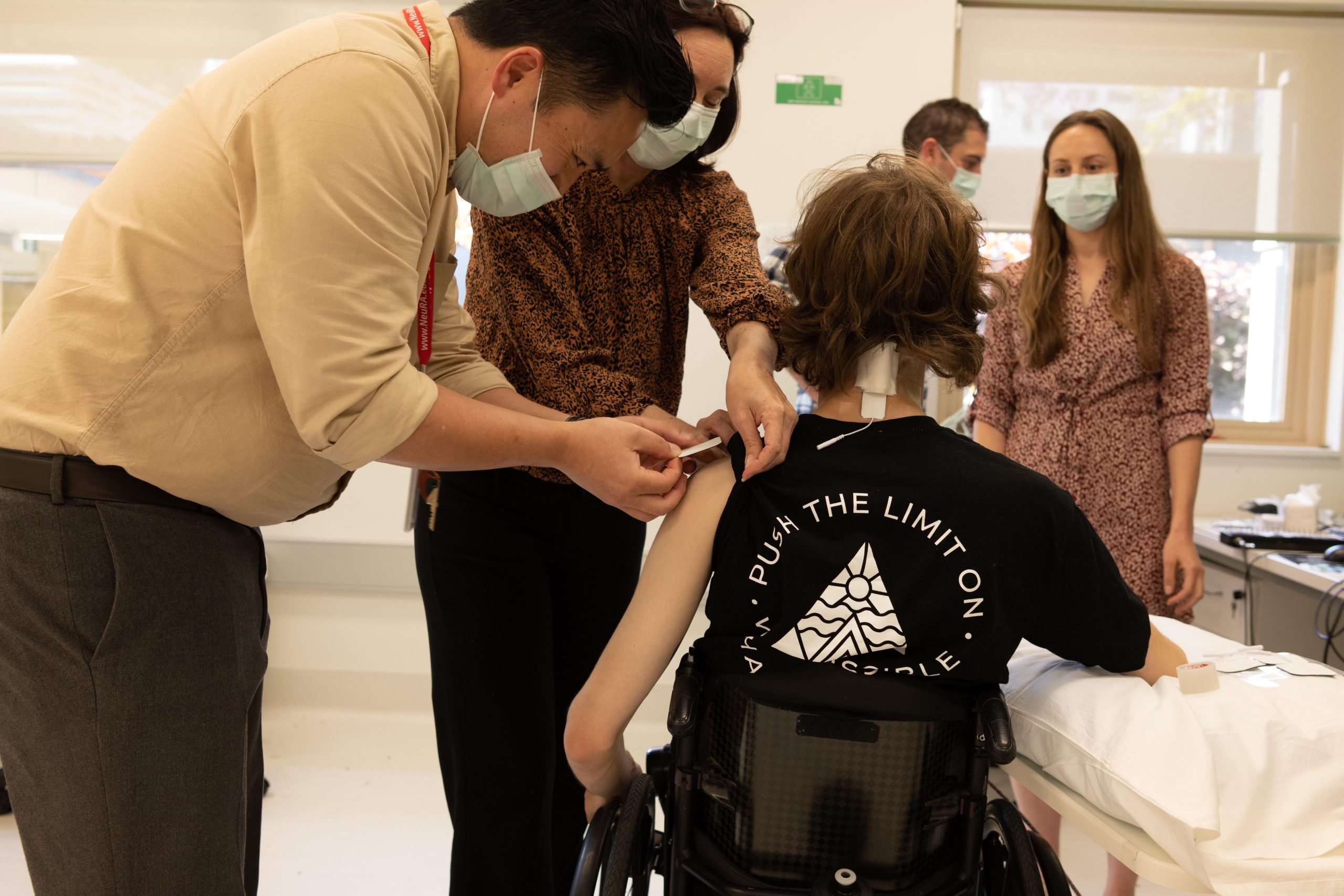

News

First clinical trials of promising therapy for spinal cord injuries begin in Fremantle
Thursday June 12, 2025

- Neurostimulation aims to help patients regain lost function
- WA has the highest rate per capita of spinal cord injury in the country
- The trials are part of a five-year National Roadmap to a Cure
A potentially life-changing therapy for people with spinal cord injuries is now being tested in WA with the start of clinical trials for neurostimulation, an experimental therapy that’s showing promise for restoring lost function.
The trials of neurostimulation are being run by researchers at the Spinal Cord Injury Research Centre at Neuroscience Research Australia (NeuRA) in partnership with SpinalCure Australia.
They are clinically testing how targeted electrical pulses on the spine can help reawaken communication between the brain and the spinal cord. The neurostimulation is non-invasive, being delivered through electrodes placed on the skin, and this cutting-edge process is combined with physical therapy.
“This is a major step forward for people in WA living with spinal cord injuries,” said SpinalCure’s executive director Duncan Wallace, who is a C4/5 quadriplegic. “It’s the first part of a program of exciting research we plan to bring to WA over the coming years as part of our upcoming National Roadmap to a Cure.”
The trials in WA are part of Project Spark, a national research initiative delivered by SpinalCure in collaboration with NeuRA, Spinal Cord Injuries Australia’s NeuroMoves division, and New Zealand’s CatWalk Trust, and financially supported in WA by the Insurance Commission of WA (ICWA) and the federal government’s Medical Research Future Fund (MRFF).
The new clinical research project is based at the NeuroMoves facility in Cantonment St, Fremantle.
The aim is that participants in the project will have the possibility of regaining significant movement and independence or even walk again.
The Fremantle site is hosting two major trials under Project Spark:
* Get a Grip, funded by ICWA, targets breathing and hand and arm function in people with cervical spinal injuries. Participants attend three sessions per week for six weeks. Eight WA participants have already enrolled or signed up.
* eWALK 2, funded by the MRFF, is focused on helping paraplegic and quadriplegic participants stand and walk again. Treatments run for 12 weeks and are set to begin in July, with screening already underway.
Up to 20 West Australians are expected to take part in each trial over the next three years. Regional participants are being actively encouraged to apply, with travel and accommodation costs fully covered.
“This isn’t just research. It’s a chance to change futures – one person, one family, one community at a time,” Mr Wallace said.
SpinalCure says Western Australia has the highest rate of spinal cord injury per capita in the country, with more than 2800 people currently affected. The lifetime cost to the WA economy is estimated at more than $10.3 billion.
WA Senator Linda Reynolds, who has long championed spinal cord injury research, was at the launch of the Project Spark trials in Fremantle this week.
“As someone with a personal connection to this cause, I am passionate about championing groundbreaking research and treatment for spinal cord injuries,” Senator Reynolds said. “It’s why I’ve fought to help secure federal support for Project Spark. This work gives hope to thousands of Australians – and now West Australians can be part of it too.”
For more information, go to https://www.spinalcure.org.au/campaigns/projectspark/.

